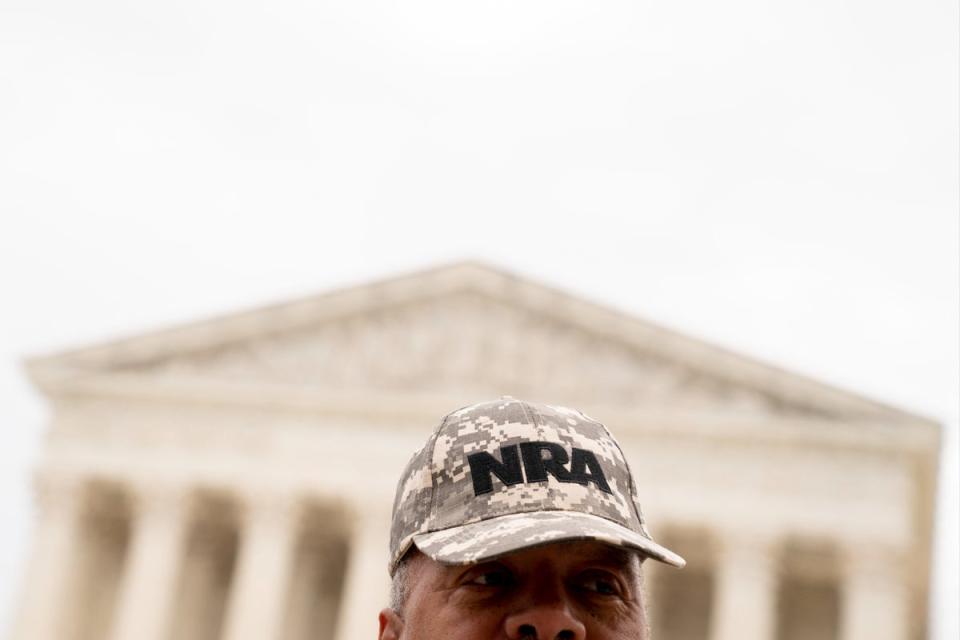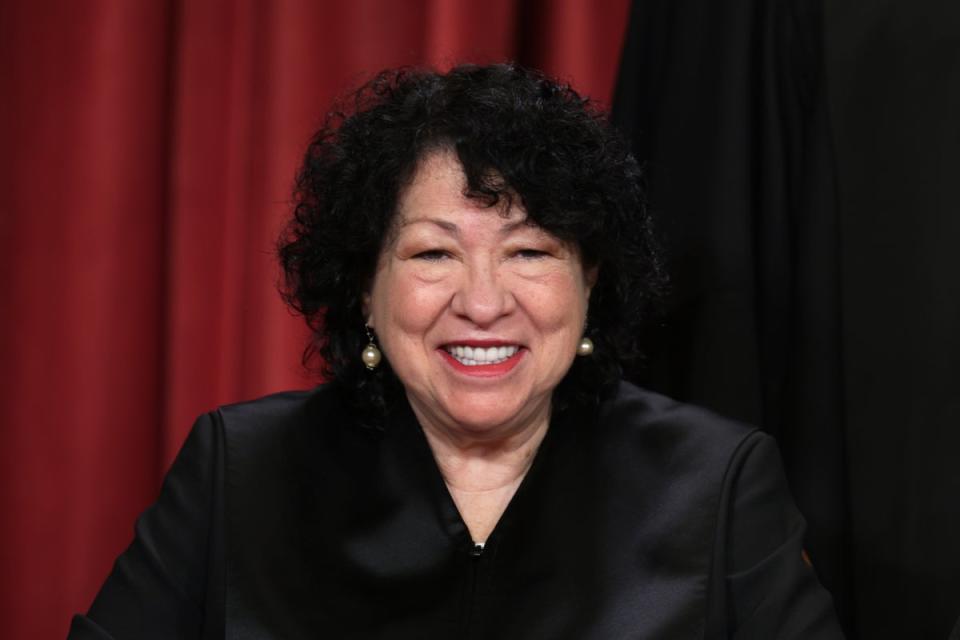NRA gets 1st Amendment win as Supreme Court blasts NY official who pressured banks to cut ties with gun lobby

The NRA can continue with a lawsuit alleging a New York government official violated the gun lobby’s First Amendment rights when she told financial groups not to do business after the Parkland mass shooting.
In a win for the controversial gun advocacy group, Supreme Court Justice Sonia Sotomayor wrote in a ruling the NRA “plausibly alleged” the former head of the New York State Department of Financial Services violated the lobby’s right. Sotomayor issued the ruling Thursday as the high court voted 9-0 to allow the NRA suit to continue.
The NRA filed a lawsuit in New York, accusing Maria Vullo of overstepping her authority by coercing banks and insurers to stop working with them. But the New York 2nd Circuit Court of Appeals dismissed their claims in 2022, saying the official’s actions did not rise to the level of unlawful.
“While a government official can share her views freely and criticize particular beliefs in the hopes of persuading others, she may not use the power of her office to punish or suppress disfavored expression,” Justice Sotomayor wrote in the opinion.
Justice rejected the New York appeals court’s decision, clearing the way for the suit to continue.

The case dates to 2018 when Vullo issued guidance to banks and insurance companies about conducting business with the NRA in the wake of the Parkland high school shooting which left 17 people – including 14 children – dead.
At the time, the department was investigating Carry Guard, an NRA-endorsed insurance program that offered to pay for civil and criminal legal fees in cases where a gun owner shot another person in self-defense.
The agency was determining whether Carry Guard was permitted under New York law, which generally does not allow insurance products to insure a person for intentional criminal acts. Three insurers later ceased to underwrite the Carry Guard policy after reaching settlements and entering consent orders.
But after the deadly high school shooting, and shortly after the Carry Guard policy investigation, Ms Vullo issued guidance, warning financial institutions of “reputational risks” and encouraging them to “review any relationships” they had with the NRA or other gun advocacy organisations.
The NRA sued, claiming Vullo’s guidance was threatening and violated the First Amendment.
In an unexpected teaming-up, the American Civil Liberties Union argued on behalf of the NRA in March.
“While the ACLU stands in stark opposition to the NRA on many issues, it is representing the group to safeguard the First Amendment rights of all advocacy organizations,” the ACLU wrote in a press release earlier this year.

Justice Sotomayor said if the NRA’s allegations are true they “highlight the constitutional concerns” with the government intermediary strategy that allows officials to expand their jurisdiction to suppress speech.
“Yet where, as here, a government official makes coercive threats in a private meeting behind closed doors, the “ballot box” is an especially poor check on that official’s authority,” Justice Sotomayor wrote.
She caveated her opinion by underlining that “nothing” in the case gives the NRA, or other advocacy groups, immunity from government investigation or the right to disregard state or federal laws.

 Yahoo News
Yahoo News 
